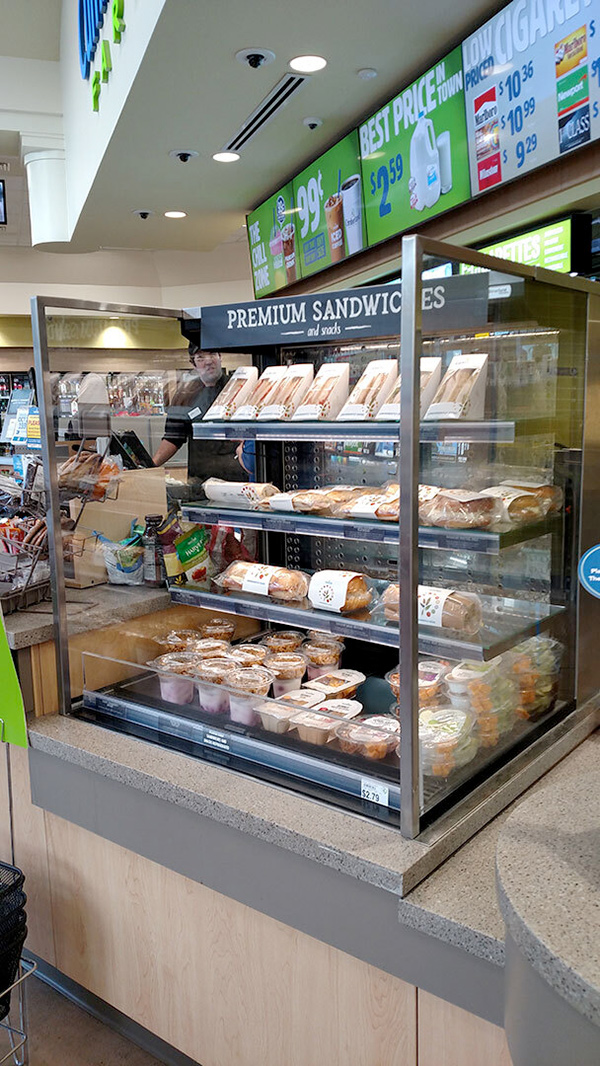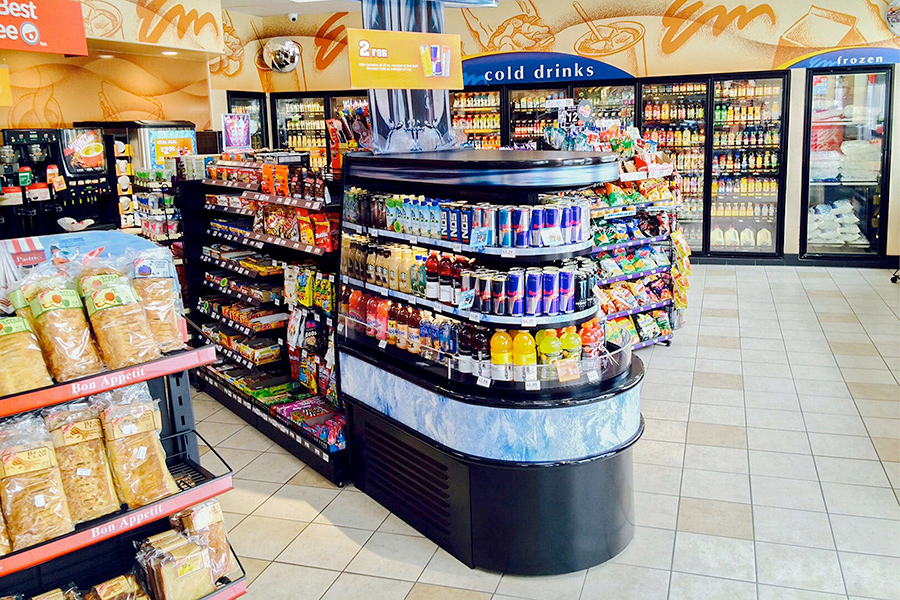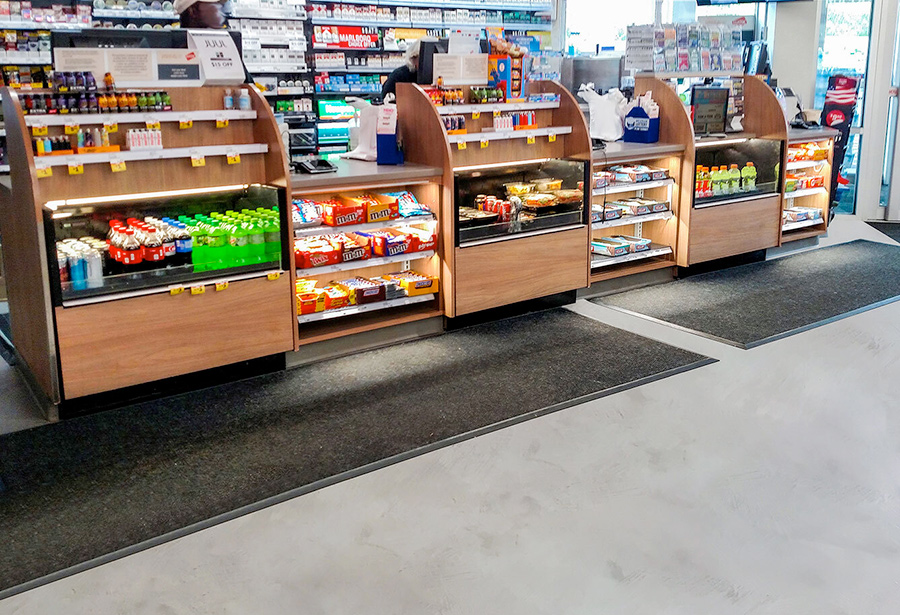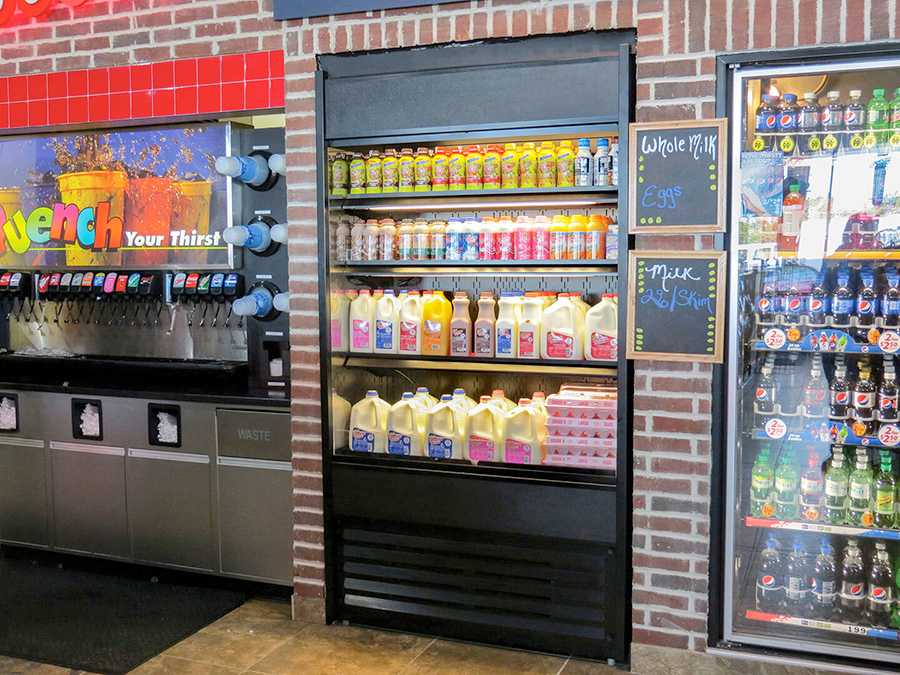 Foodservice sales continue to play a larger role for convenience stores accounting for a quarter of the overall instore sales as compared to 6.8% a decade ago. Now making up over 35% of instore gross profits, c-stores are upgrading their foodservice offerings to be on par with QSRs knowing that consumers may be more likely to choose the option that is most convenient for them.
Foodservice sales continue to play a larger role for convenience stores accounting for a quarter of the overall instore sales as compared to 6.8% a decade ago. Now making up over 35% of instore gross profits, c-stores are upgrading their foodservice offerings to be on par with QSRs knowing that consumers may be more likely to choose the option that is most convenient for them.
According to NACS, 85.1% of operators are confident that new or expanded foodservice offerings would significantly improve their profitability, and 70.1% considered foodservice innovation a top priority to expand their overall business.
Structural Concepts has put c-stores in a prime spot to capture more share of the foodservice market by providing solutions aligned with the needs and interests of both operators and shoppers, ensuring consistency in the fresh food product, and delivering an enhanced experience.
Having long recognized the growing trend of c-stores seen as a destination for fresh food, the manufacturer has proactively delivered innovative display options that not only blend in with the store format but also offer cost-effective configurable turnkey solutions when merchandising strategies change over time.

On average, per NACS Speed Metrics Survey, c-store customers spend only 0:03:33 from the time they leave their cars until the time they get back in their cars with their purchase. Structural Concepts enhances convenience and speed of service to those time-starved shoppers with a deep portfolio of self-service merchandisers and displays designed to accommodate the modern consumer’s fast-paced lifestyle and desire to make speedy selections and transactions.
Refrigerated self-service wall cases, end caps, and islands easily create impulse-buy sites, provide daypart merchandising flexibility, and the ability to cross merchandise, while blending into high trafficked areas to generate incrementality by stimulating purchase decisions.
Utilizing space-saving innovative display options, combination models optimize floor space with multiple display areas in a single piece of equipment providing the flexibility to sell a variety of fresh foods within different methods for serving the customer. Taking full advantage of unused space and helping operators realize untapped profit potential, Structural Concepts also offers countertop displays as well as undercounter merchandisers whereas the shape of these cases makes them ideal for integrating into counters so that all customers see is fresh food and beverages making these modular units the perfect grab-and-go solution.
With prepared foods making up 68.4% of foodservice sales in c-stores where the top categories include 42% sandwiches/wraps (42%) and meals/ready-to-eat (29%), Structural Concepts has elevated the customer experience with a vertical combination grab & go refrigerated and heated display providing both hot and cold temperatures in the same case to meet the needs of those shoppers who have a high interest in healthier and prepared foods.

To ensure consistency in the fresh food product experience, Structural Concepts recently commissioned The National Foodservice Lab to conduct a holding chamber shelf-life study involving equipment from three manufacturers of refrigerated and heated food display merchandisers. The study focused on refrigerated displays in the multi-shelf and under counter grab & go categories, as well as heated multi-shelf grab & go merchandisers.
In addition to having the longest shelf life for most of the food products assessed, Structural Concepts’ models also saw the lowest overall percentage of change in the quality of food over time, confirming that the food in its heated displays remained fresher during a 4-hour duration. The study also established that Structural Concepts’ refrigerated merchandisers allow store operators to safely display food products through the recommended shelf life.

Additional cost scenarios related to the quality and safety of the food products tested beyond waste and loss included the longer-term labor expenses involved in restocking the merchandiser. Hence, if the same amount of food is expected to be offered to the public and kept hot throughout all existing dayparts, the other manufacturers that were evaluated would require incremental labor costs to replace and refill as compared to Structural Concepts due to their higher spoilage rates.
To learn more about how Structural Concepts can minimize operating costs, including preventing food waste and shrinkage, please visit structuralconcepts.com.



